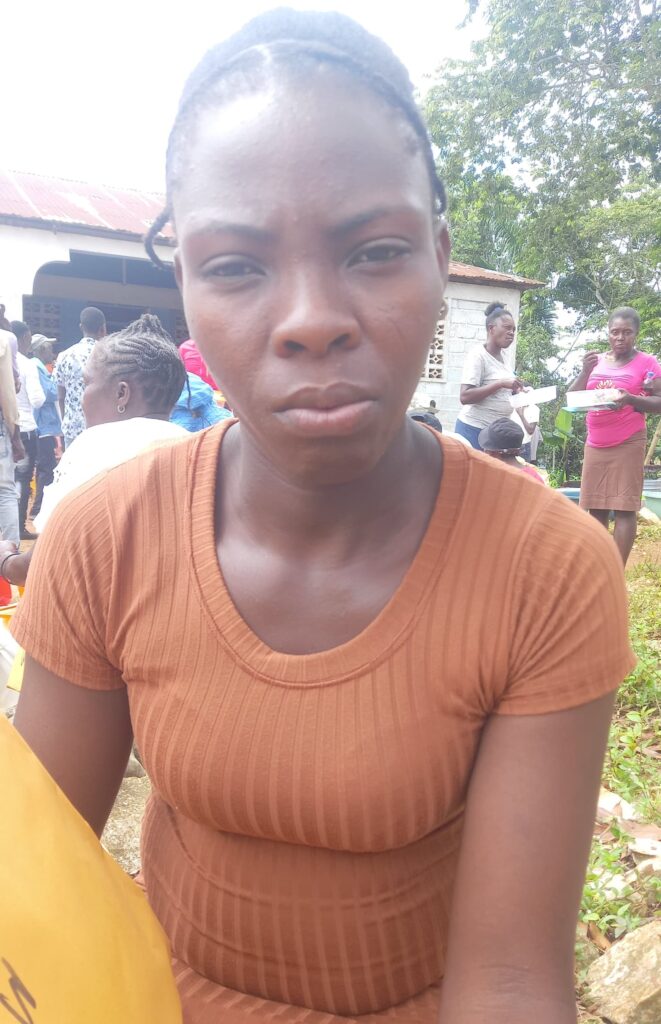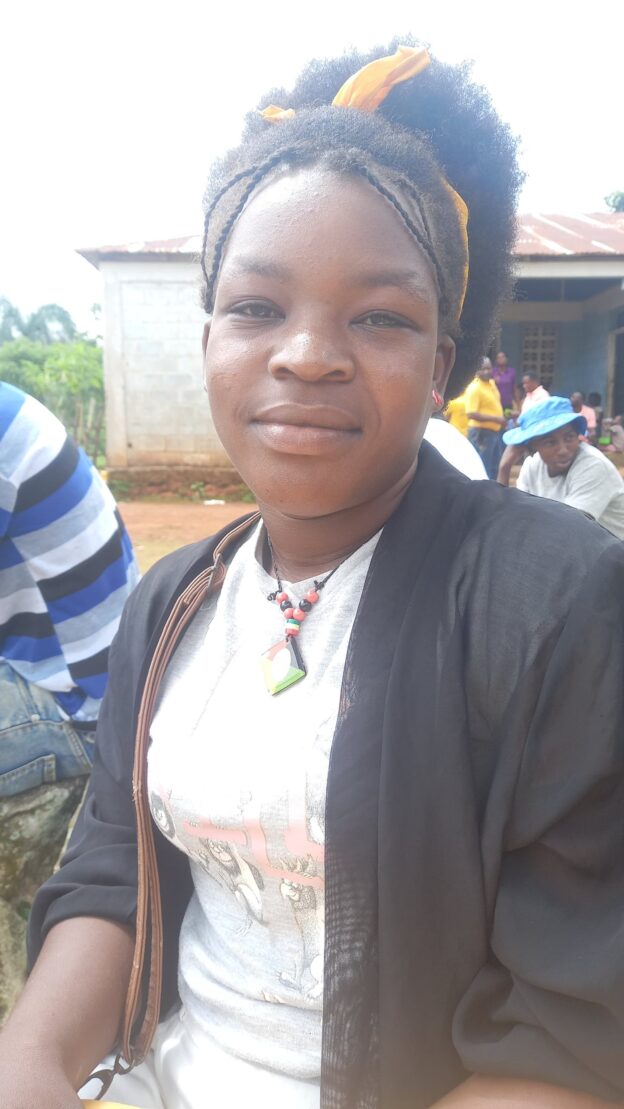Gwo Moulen is an agricultural community along the north side of the ridge that separates Laskawobas from Savanèt in Central Haiti. It is a long way from downtown Laskawobas, a long way even from Pouli, the closest that any kind of road comes to the place. Getting to Gwo Moulen means a hard uphill hike that takes a couple of hours.
Roseline was born in the area, but she moved down to Pouli as a young girl. After meeting her husband Simon, she moved back to Gwo Moulen to be with him. They now live in a small home with their two young children, ages seven and four, on land that belongs to Simon’s family. They have not yet been able to send the kids to school. They can’t afford to. But, what is worse, there are days when they don’t have anything to feed them.
The couple are farmers, and they earn what they need to farm their own small plot by working in their neighbors’ fields. They can sell a hard day’s work for 200-250 gourds, which is less than $2.
Roseline was excited right away by the training she participated in at the very beginning of the program. She was especially struck by what she learned about farming peppers, something she’s never tried to grow. “They said I can just put the seeds in water to see whether they are good. Good seeds don’t float.” She wants to start growing peppers right away. It does not take much to plant a small garden, and she can sell what she grows at the market.
She plans to use the resources that the program will make available to invest more in her garden and to start raising livestock. She thinks that if she takes good care of goats, they will multiply. Eventually she’ll be able to sell of some goats to buy a cow and then, farther down the road, maybe some land.

Maude and her husband Brunel live in Gwo Moulen as well. She moved there when she and Brunel first got together about six years ago. They are in a house on land that belongs to her father-in-law. She’s originally from Do Bwa Wouj, a market community located about an hour’s hike eastward along the ridge.
The couple has three children. They were able to send the two older ones to school this year, but there’s a catch. They bought the uniforms and the supplies, but they were not able to save up the school fees. Recently, the principal sent the children home until their tuition has been paid.
She and Brunel support the family as day-laborers. They sell a day’s work in their neighbors’ fields for just under $2 each. “It’s enough to feed us,” Maude explains, at least when the folks who hire them pay. Sometimes, however, days can go by. And she adds, “On days when we can’t find work, we have nothing to eat.”
She’s been thinking about how to use the funds the program will provide her for investment, and she feels sure of one thing. She cannot try small commerce. If she tries to sell something in Gwo Moulen, people will expect to buy on credit and then they won’t pay. So she’d rather get livestock. “M ka chanje bèt.” That means that she can take care of animals: goats, pigs, even chickens. She hopes that the animals will eventually make it possible for her to buy some farmland so that she and Brunel can work their own land rather than their neighbors’.
